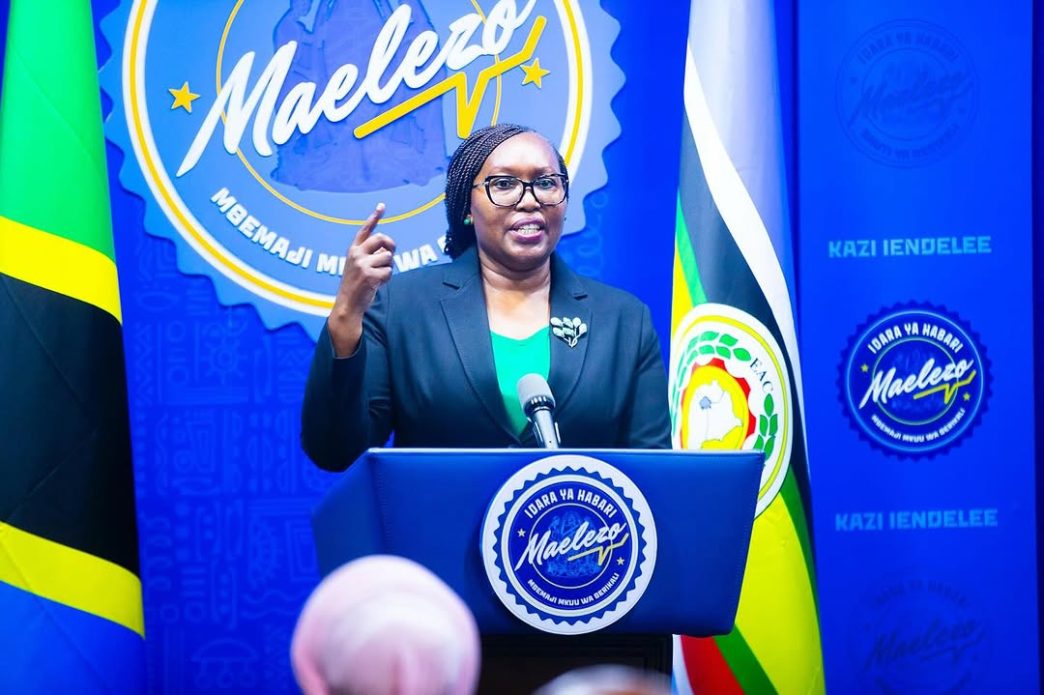
DODOMA: THE National Environmental Management Council (NEMC) has achieved 68 per cent of its environmental protection goals under the Sixth-Phase Government, according to Director General Dr Immaculate Semesi.
Speaking in Dodoma yesterday to explain achievements made during the four years of President Samia Suluhu Hassan’s leadership, she said the council was determined to ensure that the environment is continuously protected and managed per national and international guidelines.
She highlighted that NEMC is implementing the 2020-2025 CCM Election Manifesto, which priorities environmental conservation.
Under this period, the council has registered and conducted preliminary reviews of 8,058 Environmental Impact Assessment (EIA) projects, comprising 5,784 EIAprojects and 2,274 environmental audits.
Additionally, 3,836 expert meetings were held to review EIA and audit reports, resulting in the approval and issuance of environmental certificates for 4,570 projects. Dr Semesi credited the introduction of a digital system for processing EIA projects for improving efficiency.
“Before the introduction of the electronic registration and approval system, NEMC registered approximately 900 projects annually. With the system in place, the number has risen to over 2,000 projects per year. This is a significant transformation under the Sixth-Phase Government led by President Dr Samia Suluhu Hassan,” she stated.
To enhance environmental management, the council registered 1,023 environmental experts and issued certificates of operation to 503 professionals who met the criteria set by the 2021 Environmental Expert Registration and Practice Regulations.
“This registration is now conducted electronically, improving efficiency and ensuring that only qualified professionals engage in environmental impact assessments,” Dr Semesi noted.
In promoting public awareness and preventing the hazards of plastic bag usage, NEMC conducted 88 awareness programs via media platforms and 20 stakeholder meetings on plastic waste issues.
Furthermore, 178 inspections were carried out in plastic production and distribution facilities, with 57 found violating regulations and subjected to legal action. Over 150 tonnes of non-compliant packaging materials were confiscated and destroyed.
“The fight against plastic pollution requires collective responsibility, from the family level to the national level, to achieve positive outcomes,” Dr Semesi stressed.
Environmental Monitoring and Pollution Control
Over the past four years, NEMC has conducted 9,606 inspections and handled 1,483 complaints, mainly related to noise and vibration pollution. She stated that the council has played a crucial role in controlling environmental pollution in major projects with potential risks, such as the Julius Nyerere Hydropower Project, the East African Crude Oil Pipeline (EACOP), and the Standard Gauge Railway (SGR).
Additionally, 50 public education programs and 75 awareness sessions were conducted on noise and vibration control, alongside 481 inspections to address related complaints.
In hazardous waste management, NEMC issued 781 environmental permits and hazardous waste monitoring licenses. A total of 1,477 monitoring documents were processed, with 1,089 reviewed, revealing that 165,834 tonnes of hazardous waste, including scrap metal, used batteries, tires, glass, waste oil, plastics, and electronic waste, were successfully monitored nationwide.
Dr Semesi further stated that the council conducted various research studies on environmental challenges, including pollution in the Mara River, coastal erosion at Coco Beach, Kunduchi, Mbweni JKT, and Mikadi, as well as environmental assessments in Hanang (Manyara) and Mamba Myamba (Same, Kilimanjaro).
Furthermore, NEMC assessed environmental challenges such as flooding in Rufiji, Singida, and Mpwapwa in Dodoma, as well as landslides in mountainous areas including Same, Mount Kawetere, Mount Livingstone in Mbeya and Mount Hanang in Manyara.
The council also examined issues affecting wetland areas like Kilombero and MalagarasiMoyowosi and challenges in dump ports, preparing reports with recommendations on how to address these environmental concerns.
Additionally, the council assessed the water quality of Lake Victoria, identifying priority areas for conservation based on detected environmental threats.
These studies resulted in two key reports: Development of Environmental Management Strategy Towards Sustaining Ecological Integrity of Lake Victoria and Lake Victoria: Roadmap for Management of Water Quality in Mwanza City, Tanzania.
Moreover, the council is conducting research on the biodegradability of alternative nonwoven bags to determine the necessary quality and standards for manufacturing non-plastic biodegradable bags.
In efforts to address climate change, through accreditation as the National Implementing Entity for the Adaptation Fund in the country, four environmental development projects have been implemented in Bunda, Zanzibar, Dodoma, Singida and Tabora.
ALSO READ: NEMC registers 1023 experts to boost environmental conservation goal
Furthermore, a climate resilience project targeting coastal communities in Zanzibar is underway as part of the council’s commitment to mitigating the effects of climate change.
Dr Semesi reaffirmed that NEMC remains dedicated to advancing environmental protection policies and ensuring that conservation efforts align with both national and global sustainability goals.
